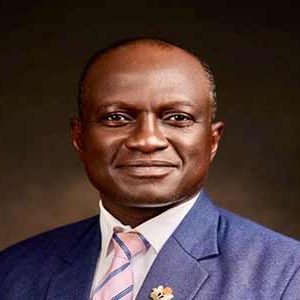• As initiative trains 116 stakeholders on conflict resolution in Ondo
The World Bank, through the Livestock Productivity and Resilience Support Project (L-PRES), has secured the support of the Israeli government to boost pasture production in Nigeria.
Its Task Team Leader for the L-PRES project, Dr. Chidozie Anyiniro, while speaking at the workshop on technologies for sustainable pasture management yesterday in Abuja, explained that the global financial institution had secured a Trust Fund from the Israeli government to share innovations to boost pasture production in the most populous black nation.
This, according to him, will increase livestock productivity, mitigate the impact of farmers and herders’ conflicts, and enable Nigerians to embrace pasture production as a business.
He highlighted the technologies to include irrigation, productivity-enhancing technology, saying this helps Nigerians to learn how to produce pasture in the semi-arid or arid regions.
The National Project Coordinator of LPRES, Sanusi Abubakar, said in livestock, there are two drivers of conflict, including water and pasture, adding that the project was looking at technologies to improve pasture production.
He disclosed that several countries have expressed interest in showcasing their technologies, including Brazil, the Netherlands and Israel, adding: “We are showcasing the technologies from Israel to about 20 states participating in L-PRES so that farmers can adopt these technologies to improve what they are doing.”
Minister of Livestock Productivity, Idi Muktar Maiha, submitted that given the pressing challenges ranging from overgrazing and climate stress to rising tensions over scarce pasture resources, “it has become evident that innovation and collaboration must be our most potent tools.”
He stated that the pursuit of sustainable pasture management is not merely an agricultural undertaking, but also a pathway towards environmental stewardship, social stability, and economic resilience.
Represented by Mr. Ishaq Bello, the minister averred that the involvement of local and international stakeholders, including farmers, researchers, policymakers and development partners, reinforces shared commitment to transform rangeland management practices in Nigeria’s arid and semi-arid zones.
Head of Foreign Relations and International Cooperation at Israel’s Ministry of Agriculture and Food Security and representative of the Asian nation, Daniel Werner, pledged support for Nigeria’s livestock transformation.
IN the same vein, the L-PRES has begun a three-day training on farmer-herder conflict resolution for 116 stakeholders in Ondo State.
The training, held in Akure, comprises major stakeholders from the three senatorial districts of the state, including farmers, herders, traditional rulers, and security personnel.
Speaking at the opening ceremony, the state’s L-PRES project coordinator, Olufemi Adeogun, clarified that the training was geared at enhancing the productivity, resilience, and commercialisation of the livestock value chain within the state.
According to him, farmer-herder conflict has remained a harsh reality in society and, if left unattended to, may lead to disruption of harmony and food scarcity.
Also speaking, the lead consultant for the training, Ebruke Esike, highlighted trust, lack of sincerity of purpose, and poor implementation in terms of enforcement as major factors that facilitate farmer-herder conflict.
He stressed that the knowledge gained from the training will assist farmers and herders to work harmoniously and increase their productivity.
On her part, the Permanent Secretary of the Ondo State Ministry of Agriculture and Forestry, Foluke Daramola, stressed that the state government has engaged in various initiatives to ensure food security in the state.
Stay ahead with the latest updates!
Join The Podium Media on WhatsApp for real-time news alerts, breaking stories, and exclusive content delivered straight to your phone. Don’t miss a headline — subscribe now!
Chat with Us on WhatsApp





